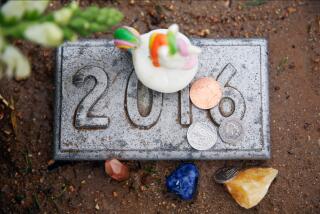Isolation Top U.S. Ailment, Researchers Say
- Share via
WASHINGTON — Decades of personal isolation and an erosion of community life has had a huge toll on U.S. society, from a drop in voter turnout to soaring rates of depression, said a group of social scientists Tuesday.
Harvard University professor Robert Putnam, who is spearheading a Harvard-convened group trying to rebuild community ties, told a news conference the well-being of the nation depended on broad-based social change, which involved a return to community life.
“There has been a substantial 30-year decline in what we call social capital--that is those social networks and the norms of reciprocity that make it possible for us to function,” Putnam said.
Putnam, backed by Harvard University’s John F. Kennedy School of Government, launched the Saguaro Seminar, which draws together leaders from academia, the arts, clergy, business and politics, to try to rebuild community life.
Among recommendations in the report, called “Better Together”, were overhauling the workplace to give people greater flexibility, reducing the size of schools, using cultural institutions and strengthening the influence of spiritual faith.
Over the past 25 to 30 years, Putnam said there had been a decline of about 25% in voter turnout and the number of people attending civic meetings had halved.
“In area after area, our communities don’t work as well when we are not well connected,” he said, pointing out that test scores at schools were boosted when parents were involved in the classroom.
The report attributes the decline in social capital to the demographic shift across the nation, with more two-career families, less time to devote to community and family life, urban sprawl and television.
More to Read
Sign up for Essential California
The most important California stories and recommendations in your inbox every morning.
You may occasionally receive promotional content from the Los Angeles Times.










